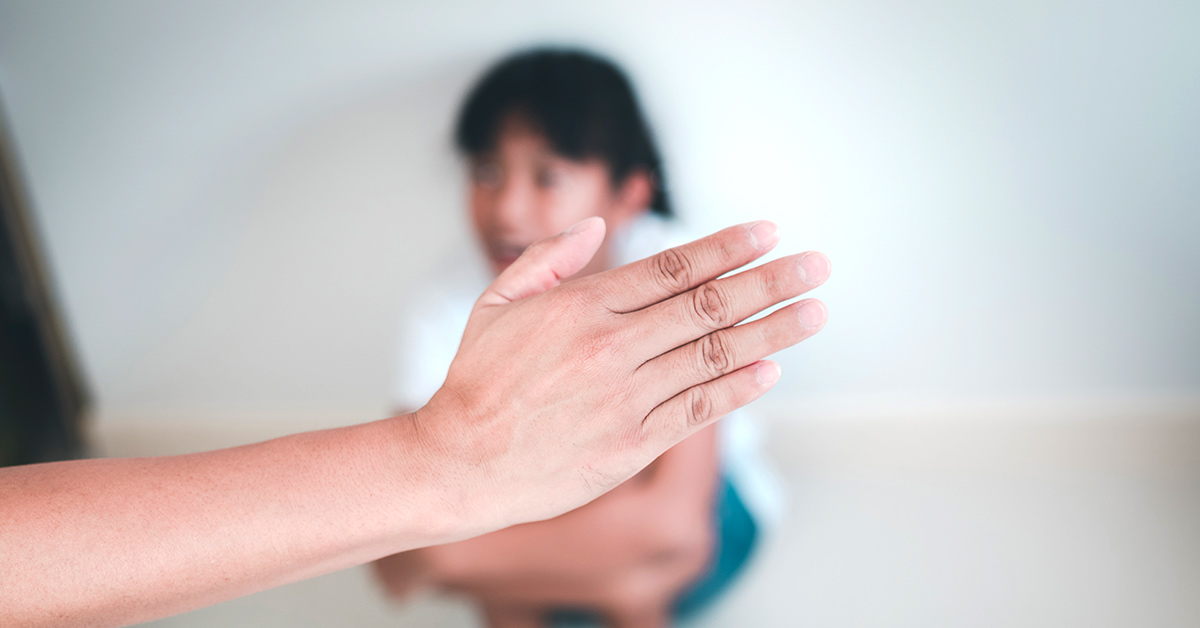Parents, educators, and psychologists have long debated whether or not spanking is an effective punishment for children. In April of this year, Harvard published research that demonstrates the damaging effects spanking can have on a developing child’s brain. This further supports the argument that this, along with other forms of corporal punishment, should not be used on kids. (1)
Research Reveal Damaging Effect Spanking Has On Children’s Brains
A study done at Harvard University reveals that spanking actually changes the development of a child’s brain. Their research shows that these alterations are similar to those from severe maltreatment and increase the child’s perception of threats. This punishment that many view as normal and acceptable causes a similar brain response as sexual, physical, and psychological abuse. (1)
“The findings are one of the last pieces of evidence to make sense of the research of the last 50 years on spanking,” said researcher and study co-author Jorge Cuartas. “We know that spanking is not effective and can be harmful for children’s development and increases the chance of mental health issues. With these new findings, we also know it can have potential impact on brain development, changing biology, and leading to lasting consequences.” (2)
How The Study Worked
The researchers studied 147 children. Some of these children were spanked in their early years, others weren’t. Using MRI technology, they looked at the way their brains responded to photos of various facial responses. These expressions were positive, negative, and neutral. The children whose parents spanked them had more activity in the part of the brain that controls emotional responses and threat detection. These children’s responses were higher even toward expressions that most of us wouldn’t perceive as threatening. (1)
This response is a learned one. Spanked children’s brains are programmed this way to have a faster response to environmental threats. This has long-term implications on the development of the brain that can last well into adulthood. (1)
“Preschool and school age children — and even adults — [who have been] spanked are more likely to develop anxiety and depression disorders or have more difficulties engaging positively in schools and skills of regulation, which we know are necessary to be successful in educational settings,” (2)
The other co-author of the study, Katie McLaughlin, agrees.
“We know that children whose families use corporal punishment are more likely to develop anxiety, depression, behavior problems, and other mental health problems, but many people don’t think about spanking as a form of violence,” (2)
Read: Mom Praised After Explaining Why She Never Makes Daughter Hug Her Grandparents
The Effect Is Different For Each Child
One of the main arguments pro-spankers make is that their parents spanked them and they are “fine”. The authors point out that the response and emotional impact corporal punishment elicit in children varies from child to child. The issue is that you don’t know how it will affect the child. Why take the risk when there are so many other forms of punishment that won’t cause long-lasting psychological damage? (3)
“the important message is that corporal punishment is a risk that can increase potential problems for children’s development, and following a precautionary principle, parents and policymakers should work toward trying to reduce its prevalence.” explained Cuartas. (3)
They stress that school boards, policymakers, and parents need more education on the topic. The use better, more impactful but less damaging alternatives is key. (1)
Keep Reading: Fans Are Divided After Eva Mendes Shares Parenting Quote About Spanking
Sources
- “Corporal Punishment and Elevated Neural Response to Threat in Children.” Online Library. Jorge Cuartas, et al. April 9, 2021.
- “The Effect of Spanking on the Brain.” Harvard. Jill Anderson. April 13, 2021.
- “Spanking may affect the brain development of a child.” Science Daily. April 12, 2021.

